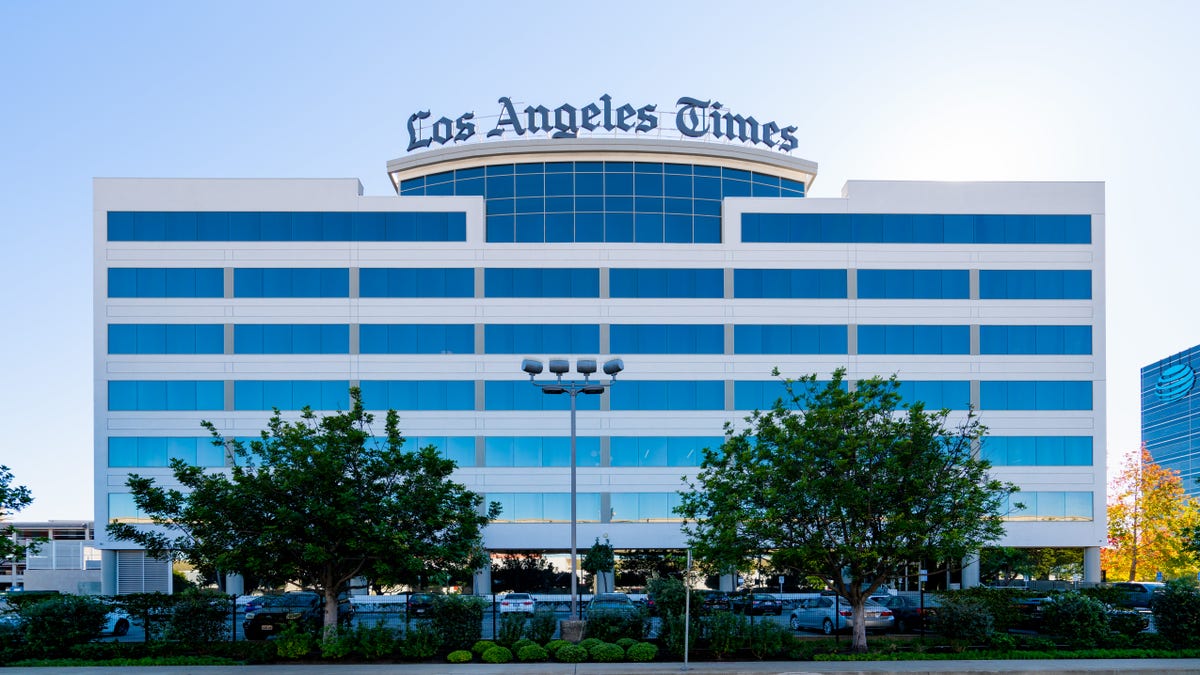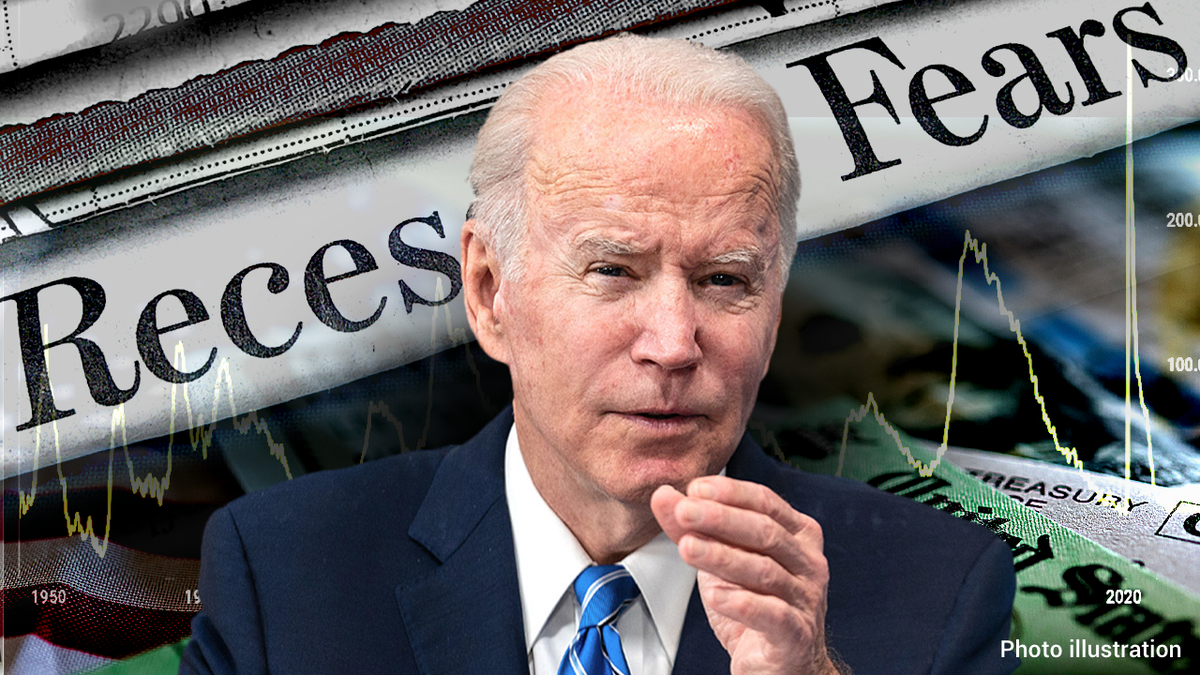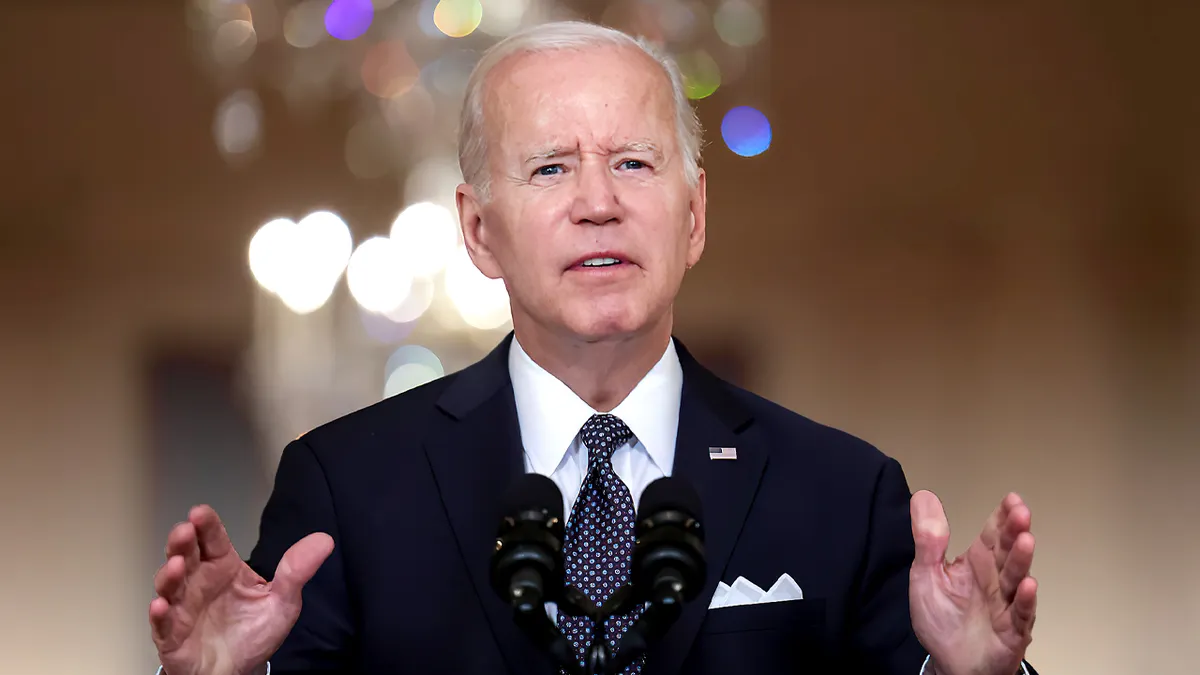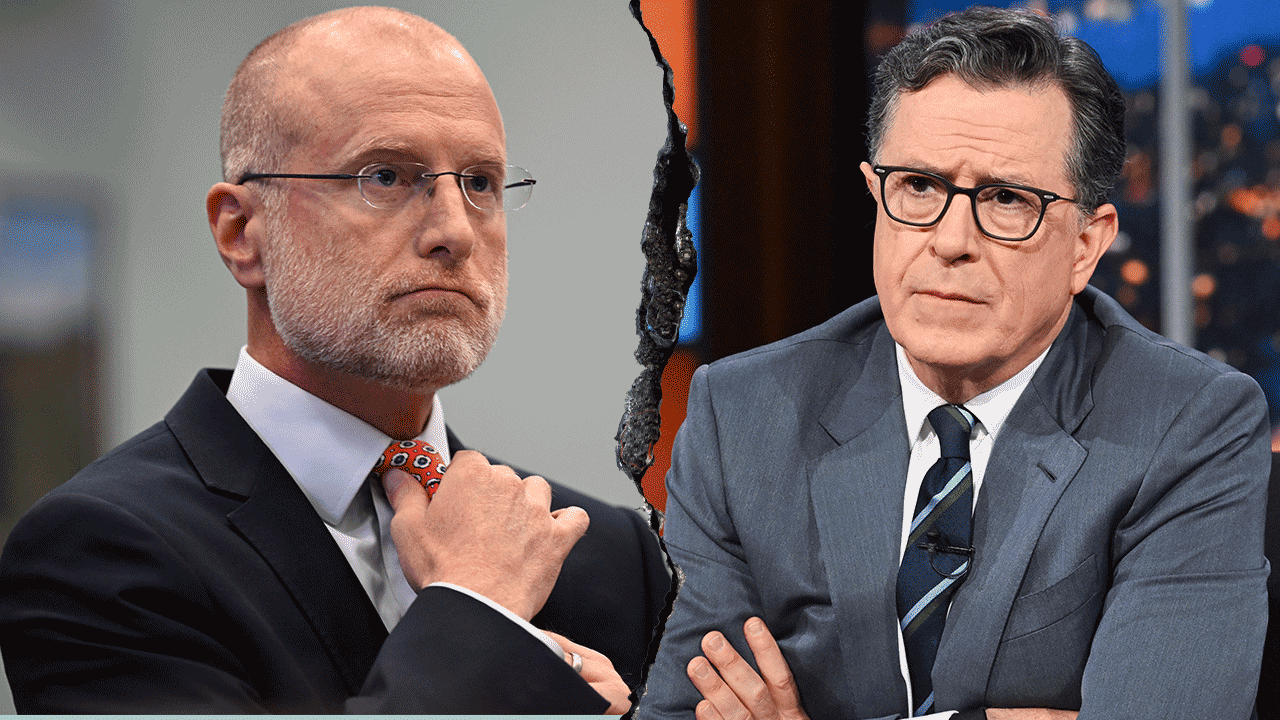Biden's gas tax holiday: Some Democrats aren't seeing the point
Fox News White House correspondent Jacqui Heinrich provides insight on President Joe Biden's proposal to try to help Americans facing high gas prices on 'Special Report.'
A report from the Los Angeles Times Wednesday downplayed the economic damage Americans could face as a recession becomes more likely, just the latest example of the paper being dismissive of financial indicators.
In a story titled "Yes, a recession looks inevitable. But it may not be that bad. Here’s why," LA Times economics reporter Don Lee began by suggesting President Biden and his critics are engaging in "political theater" for "acting as though the nation faces an unprecedented catastrophe" on the subject of a looming recession.
"Behind the rhetoric, the reality is that recessions are a normal part of American economic life. The U.S. has had one, on average, every 6½ years since 1945," Lee told readers Wednesday. "And in the present case, most professional economists think any downturn now is likely to be relatively mild, with a fairly quick recovery."
Lee cited Cresset Capital official Jack Ablin, who's predicting a "small ‘r’ recession" since "it’s not going to be protracted and things aren’t going to fall apart."
LIBERAL MEDIA ROUTINELY DOWNPLAY INFLATION OR TURN IT INTO A POSITIVE: ‘SLASH YOUR SHOPPING BURDEN’

EL SEGUNDO, CA - NOVEMBER 10: A general view of the Los Angeles Times offices on November 10, 2020 in El Segundo, California. (Photo by AaronP/Bauer-Griffin/GC Images)
"Many households are flush with cash, jobs are plentiful with demand for new workers strong. Banks are well capitalized, which gives them a solid buffer against a business contraction," Lee wrote. "What may be different this time is the public’s state of mind, coupled with a handful of unusual factors — first among them the grinding war in Ukraine."
The LA Times reporter appeared to downplay how strong the "economic stability" was before COVID, writing how the economy "was not growing much and real incomes were stagnating" while admitting "unemployment was low among most population groups, prices were stable, interest rates were at rock bottom and the stores were flooded with low-cost goods made overseas," which were all impacted by the pandemic.
"Whether avoidable or not, the real question may be: How bad and long will the next downturn be?" Lee asked. "And on this score, there is greater consensus among experts that it’ll probably be nothing like the most recent episodes."
Lee pointed to the two-month downturn that occurred in 2020 at the beginning of COVID and the "fast and strong" rebound which he credited to the government stimulus, something he also acknowledged contributed to the inflation.
He also noted that since much of the extra cash hasn't been spent, it signals that "most people are better positioned financially and could help make the next recession milder."

U.S. President Joe Biden, March 31, 2022. (REUTERS/Kevin Lamarque/File Photo)
The article closed with an optimistic view from Fifth Third Bank strategist Jeffrey Korzenik, who believes the U.S. will "barely" avoid a recession due to the "strength of the labor market."
"[Korzenik] figures the Fed’s tightening will create more layoffs but added, 'We have so many openings, it’ll be easier to get workers recycled into the job market. It’s not bulletproof, but it means the economy is less likely to fall off a cliff," Lee wrote.
The LA Times previously published columns downplaying the threat of inflation.
In an op-ed from May 2021 writer J. Bradford DeLong declared "prices may tick up" during the recovery from the pandemic "but inflation is not a problem."
LA TIMES CRITICIZED FOR EDITORIAL ARGUING ‘SCHOOLS ARE DOING FINE WITH MASKS’: ‘CRUELTY,' 'EVIL’
"The question is not whether there will be some inflation this year, but whether it will represent ‘overheating’ of the economy as a whole. Most likely, it will not," DeLong wrote at the time.

President Biden said that he's not concerned about a recession. (Getty Images)
"One thing that should be clear, however, is that an uptick of inflation this year is nothing to be upset about, he continued. "After all, wage and price increases are an essential part of rebalancing the economy. Real production, real wages and real asset values will all be higher as a result of this year’s inflation, whereas the price level will remain far below what it would have been had the Fed managed to hit its inflation targets in the years since the Great Recession following the 2008 global financial crisis."
"While some commentators worry that we may be returning to the 1970s, this is highly unlikely… Burning rubber to rejoin highway traffic is not the same thing as overheating the engine," DeLong added.
Times business columnist Michael Hiltzik similarly dismissed inflation concerns, telling readers in a November 2021 headline, "Inflation has spiked. Stop worrying about it."
"At this moment, the chief danger in the inflation numbers — and the expectations they may fuel — is essentially political. The specter of long-term price increases provides a talking point to opponents of the social and economic reforms the Biden administration and congressional Democrats are pressing through the Build Back Better plan," Hiltzik wrote.
"Those include efforts to make child care and healthcare costs more equitable, to fight global warming, to augment early childhood education. Conservatives, who struggle to find arguments against all those reforms, have placed their offensive fortifications on the inflation threat. Now they have a tad more ammunition with which to say, ‘See?’"

U.S. President Joe Biden delivers remarks from the White House on June 02, 2022 in Washington, DC. (Photo by Kevin Dietsch/Getty Images)
CLICK HERE TO GET THE FOX NEWS APP
"There’s no evidence that the latest numbers — or any inflation statistics this season — arise from macroeconomic factors as opposed to manifestly temporary factors such as spiking demand for goods, shortages of electronic parts such as chips, and backups of imported merchandise at U.S. ports," Hiltzik wrote, adding, "Nor is there any doubt that the price increases the government reported have a definite effect on household budgets."
"But even the big numbers issued by the government Wednesday don’t match the extent to which inflation fears have reached the general public — stoked in part by ignorant reporting by the media," the columnist continued.
"Inflation is a problem, and may become worse before it gets better. But we warned: Misunderstanding by the public and policy-makers — and deliberate distortion by those who would deprive ordinary Americans of the benefits of economic reform — is the much greater threat," he concluded.









































